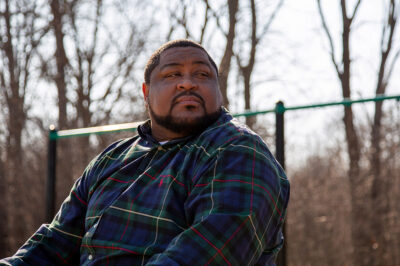Free Speech Challenge to Internet Censorship Law
FOR IMMEDIATE RELEASE
PHILADELPHIA, PA–In the first two days of trial in the battle for free speech in cyberspace, a three-judge panel heard testimony from plaintiffs who fear censorship under the new telecommunications law and took a first-ever live courtroom tour of the Internet.
The consolidated cases of ACLU v. Reno and American Library Association et al v. U.S. Depart-ment of Justice challenge provisions of the law that criminalize making available to minors “indecent” or “patently offensive” speech.
“We succeeded in presenting strong evidence on all the major reasons why this law is unconstitutional,” said Christopher Hansen, lead counsel for the ACLU. The censorship law, he said, “is technically and economically infeasible to enforce, it blocks speech that has value to a great many people, and it ignores effective alternatives available both to protect children and to protect free speech.”
Lawyers from the U.S. Department of Justice cross-examined witnesses whose direct testimony was submitted by affidavit, according to procedures laid out by the judges. The judges also questioned the witnesses from the bench, and ACLU and ALA coalition lawyers were given an opportunity to redirect, i.e., question their clients in response to the government’s cross-examination.
ACLU client Patricia Nell Warren was asked by Judge Stewart Dalzell how she would be affected by a ruling that the Internet censorship law was constitutional. Ms. Warren, a best-selling author and publisher who maintains a website featuring samples of classic gay literature, said she feared censorship.
“What I’m concerned about is that certain people in this country will perceive the entire area of gay literature to be indecent or patently offensive,” she told the judges. Ms. Warren also publishes Youth Arts, a free online “e-zine” by and for teenagers which includes many works by gay and lesbian teens.
Another ACLU client, Kiyoshi Kuromiya, creator of the Critical Path AIDS Project website, testified that his site provides “lifesaving” information on safer sex practices aimed at reaching teens around the world. Two-thirds of American high school students are sexually active, he said, and many seek out the detailed information his website provides on an anonymous basis.
Government lawyers declined to cross-examine Patricia Nell Warren or Kiyoshi Kuromiya.
Ann Duvall, president of SurfWatch, was the only witness to offer direct testimony in court to the judges, through a first-ever Internet hook-up that allowed her to “surf” the World Wide Web and give a demonstration of how her company’s software blocks access to sites deemed unsuitable for children.
On Friday morning, judges heard from Dr. Donna Hoffman, an expert witness on marketing in cyberspace. Dr. Hoffman said that she feared the censorship law would destroy the democratic nature of the Internet. Many “mom & pop” websites might be forced close up shop on the Web because of uncertainty about criminal and financial penalties for so-called indecency under the law, she told the judges, while large corporations with vast legal resources could afford to risk prosecution.
Witnesses for the ACLU and ALA coalitions appeared in the following order:
Thursday, March 21
1. Scott O. Bradner, senior technical consultant, Information Technology Services, Harvard University (ALA).
2. Ann W. Duvall, president, SurfWatch Inc. (ALA)
3. Patricia Nell Warren, author and publisher, WildCat Press (ACLU)
4. Kiyoshi Kuromiya, director, Critical Path AIDS Project (ACLU)
5. Reverend William R. Stayton, psychologist and Baptist minister
Friday, March 22
1. Donna Hoffman, associate professor of management, Owen Graduate School of Management at Vanderbilt University (ACLU)
2. Robert B. Cronenberger, director, Carnegie Library of Pittsburgh (ALA)
3. Scott O. Bradner (returned for redirect by ALA lawyer)
Coalition lawyers are scheduled to present their final day of testimony on Monday, April 1. The government is scheduled to present its witnesses for cross-examination on April 12 and 15, 1996 (rescheduled from April 11 and 12). A fourth day of testimony has been set for April 26, to allow the ACLU and ALA lawyers to present witnesses rebutting the government’s testimony.
Following these six days of trial, the judges will issue a ruling. Under expedited provisions, any appeal on rulings regarding the new censorship law will be made directly to the U.S. Supreme Court.
Lawyers for the ACLU appearing before the court were Chris Hansen, lead counsel, Marjorie Heins, Ann Beeson, and Stefan Presser, legal director of the ACLU of Pennsylvania.
Stay Informed
Sign up to be the first to hear about how to take action.





